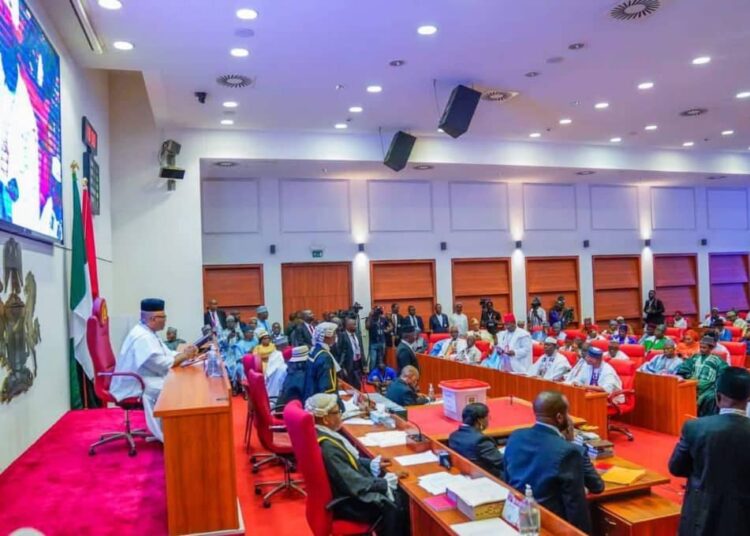The Senate, on Thursday, took a major step toward improving support for Nigerians living with Autism Spectrum Disorders (ASD) as it began consideration of a Bill seeking to establish a National Center for Autism in six zonal centres across the country for research, diagnosis and care.
ASD is a complex neurodevelopmental condition that affects communication, social interaction, and behaviour.
It manifests differently in individuals, making early diagnosis and tailored intervention essential for meaningful inclusion and personal development.
The proposed law, sponsored by Senator Natasha Akpoti-Uduaghan (Kogi Central), aims to institutionalise early detection and intervention for children and adults with autism while promoting awareness, professional training, and nationwide inclusion.
Leading debate on the general principles of the Bill titled “A Bill for an Act to Establish the National Center for Autism and Six Zonal Centers for Autism Diagnosis, Research, Education, and Care; and for Related Matters”, Senator Akpoti-Uduaghan said the initiative was long overdue and critical to Nigeria’s social and public health development.
She identified the zonal centres as Kaduna, Bauchi, Enugu, Port Harcourt, Ibadan, and Abuja.
Citing data from the World Health Organisation (WHO), the lawmaker noted that one in every 100 children globally is diagnosed with autism, adding that due to poor awareness and limited diagnostic capacity, Nigeria’s true prevalence rate is likely far higher.
The Senator lamented that the absence of a national framework has left families “to navigate this challenge alone,” relying on “poorly equipped private facilities or seeking help abroad — an option only available to the privileged few.”
“This Bill seeks to correct that anomaly by establishing a National Center for Autism with six zonal centres across the country to ensure access, awareness, and inclusion,” she told her colleagues.
Under the proposal, the National Center for Autism would be headquartered in Abuja to coordinate research, training, and policy development, while the six zonal centres will be established across the North-West, North-East, South-East, South-South, South-West, and North-Central zones, respectively.
The centers will offer diagnostic, therapeutic, and educational services, serve as referral hubs for state-level facilities, and spearhead community-based awareness campaigns.
“Many children with autism are mislabeled as stubborn, mentally ill, or possessed — leading to rejection, abuse, and lifelong exclusion,” she said. “Teachers are ill-equipped to manage these learners, hospitals lack diagnostic capacity, and parents face enormous emotional and financial strain.”
She added that the Bill was designed to “bridge these gaps by providing a federal response to a developmental and public health challenge” and to promote equity in access to care across all regions.
In her closing remarks, Senator Akpoti-Uduaghan described the Bill as “an act of social justice, empathy, and national foresight.”
“It represents our collective recognition that every Nigerian life matters, regardless of neurological or developmental differences,” she said. “It is a call to give children with autism a chance to thrive, learn, and contribute to our great nation.”
The Bill was widely commended by lawmakers across party lines, with several female Senators lauding its focus on inclusion and institutional reform.
Senate President Godswill Akpabio referred the Bill to the Senate Committee on Health (Secondary and Tertiary) for further legislative work, urging the committee to “engage stakeholders and ensure the framework reflects Nigeria’s realities.”
If passed, the legislation will be the first comprehensive federal law dedicated to autism diagnosis, care, and inclusion in Nigeria’s history.





